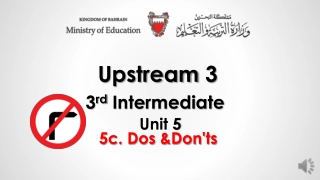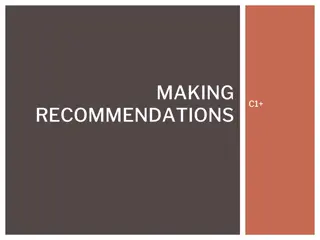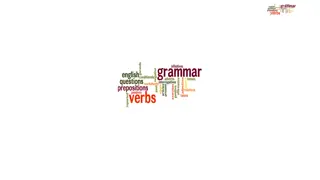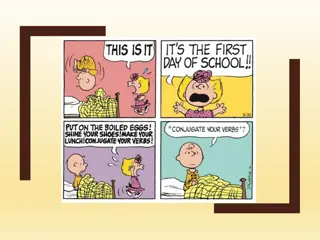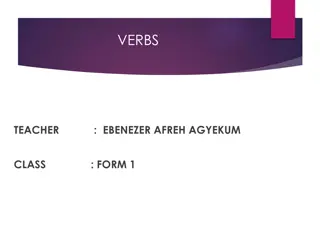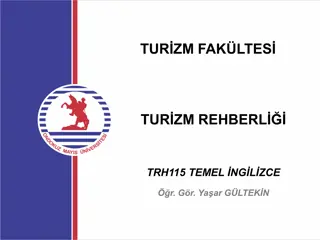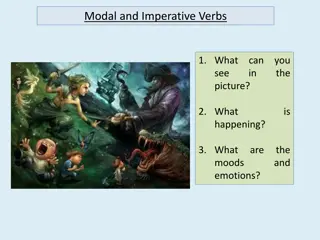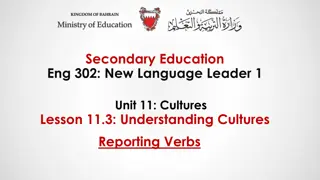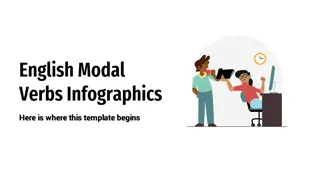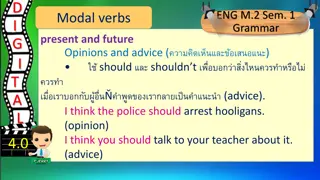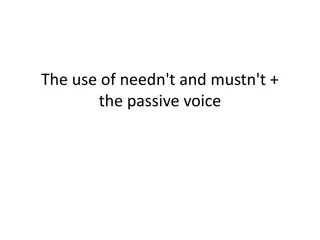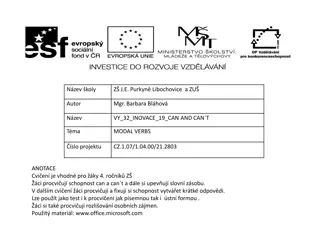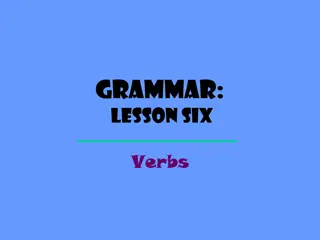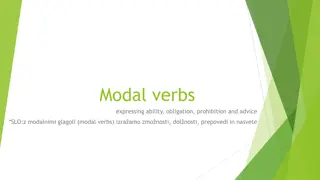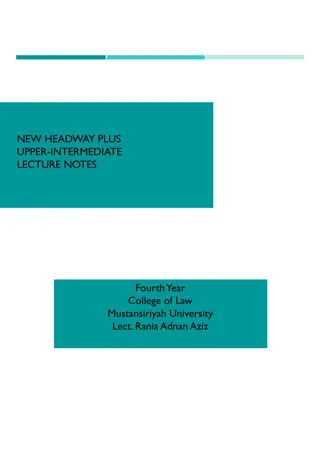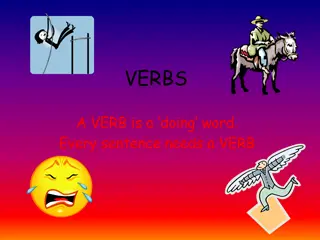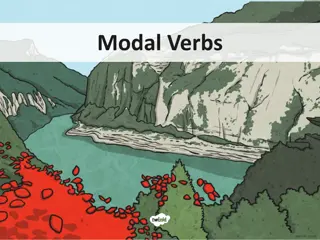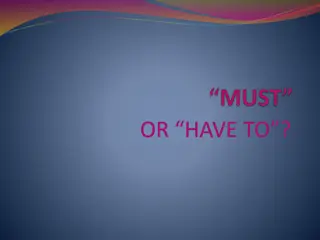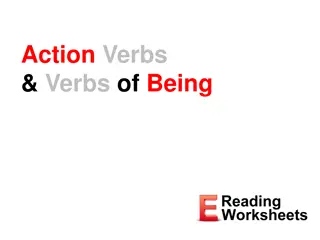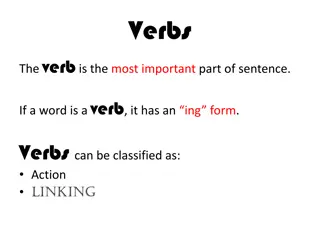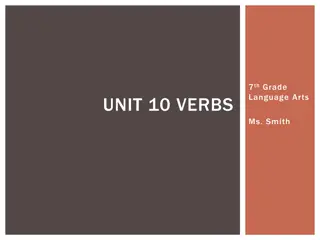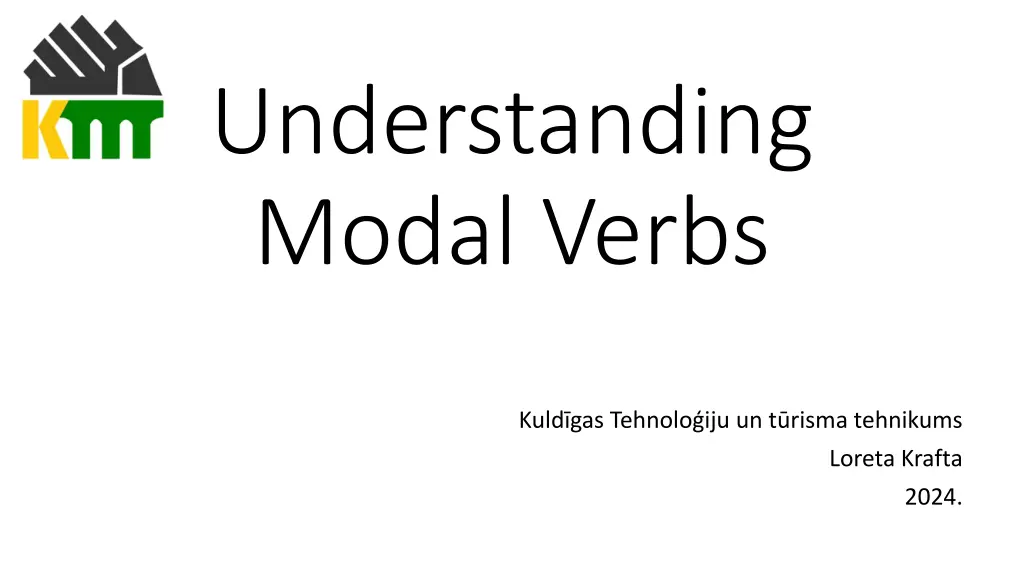
Understanding Modal Verbs: Usage, Examples, and Characteristics
Explore the world of modal verbs - auxiliaries used to convey ability, possibility, necessity, and more. Learn how to use can, could, may, might, shall, should, will, would, and must in various contexts. Discover their unique characteristics, express degrees of certainty, make requests, give permission, and more with practical examples.
Download Presentation

Please find below an Image/Link to download the presentation.
The content on the website is provided AS IS for your information and personal use only. It may not be sold, licensed, or shared on other websites without obtaining consent from the author. If you encounter any issues during the download, it is possible that the publisher has removed the file from their server.
You are allowed to download the files provided on this website for personal or commercial use, subject to the condition that they are used lawfully. All files are the property of their respective owners.
The content on the website is provided AS IS for your information and personal use only. It may not be sold, licensed, or shared on other websites without obtaining consent from the author.
E N D
Presentation Transcript
Understanding Modal Verbs Kuld gas Tehnolo iju un t risma tehnikums Loreta Krafta 2024.
Definition Modal verbs are a type of auxiliary verbs used to express ability, possibility, necessity, permission, request, and more. can, could, may, might, shall, should, will, would, must
Can/Could Ability: I can swim. Possibility: It could rain later.
May/Might Permission: May I go to the restroom? Possibility: It might snow tomorrow.
Shall/Should Shall (formal): Shall we begin? Should (advice): You should study for the exam.
Will/Would Will (future): I will help you. Would (conditional): I would go if I had time.
Must Necessity: You must submit your assignment on time.
Characteristics of Modal Verbs Do not have infinitive or -ing forms. Followed by the base form of the main verb (except for "ought to"). Always precede the subject in a question. Can be used to express degrees of certainty or probability.
Expressing Degrees of Certainty Certain: must It must be true; I saw it myself. Probable: might, may, could It might rain later; bring an umbrella. Possible: can, could I can meet you at 3 PM if that works for you.
Making Requests and Giving Permission Can I/Could I: Used for polite requests. Can I borrow your pen? May: Used for formal requests. May I have a moment of your time?
Making Offers and Promises Will: Used for offers and promises. I will help you with your project. Would: Used for polite offers and conditional promises. I would be happy to assist you.
Expressing Obligation and Necessity Must: Used for strong obligation and necessity. You must finish your homework before going out. Should: Used for advice or recommendation. You should exercise regularly for good health.
Fill in the correct modal verb 1. You have plenty of time. You __________________ hurry. 2. Somebody has knocked on the door. It __________________ be Paul. 3. I can t start my lawn-mover to work. It __________________ be broken.
Answers 1. You have plenty of time. You should not hurry. 2. Somebody has knocked on the door. It must be Paul. 3. I can t start my lawn-mover to work. It must be broken.
4. __________________ I ask you what happened yesterday? 5. I ve managed to complete my To-Do list today. But I ________________ have done it without you.
Answers 4. Can I ask you what happened yesterday? 5. I ve managed to complete my To-Do list today. But I could not have done it without you.
Conclusion Modal verbs play a crucial role in expressing various meanings in English.

